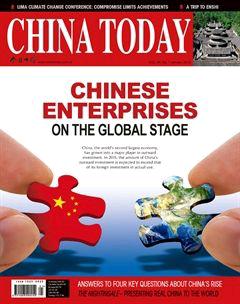Huawei Introduces Advanced Telecom Technology to Uzbekistan
By staff reporter JIAO FENG
Advanced Technology Promoting Local Economic Development
Huawei is now a world leader in networking and telecommunications equipment & services. When it was founded in 1987, the private firm had just RMB 21,000 in startup capital. However, over the following decades Huawei seized the historical opportunities brought by Chinas opening-up. In 1996, the company began to venture into the global market, first into Russia in 1997, followed by India in 1998, the Middle East and Africa in 2000, Southeast Asia and Europe in 2001, and then the U.S. in 2002. Huawei now operates in more than 170 countries and regions.
Uzbekistan has a relatively backward information industry and limited technology. Until the early 21st century, it had no manufacturers of telecom equipment. When it entered the country in 1999, Huawei began providing such products as CDMA and GSM devices, switches, transmitters and other equipment used in intelligent networks to Uzbek phone and mobile companies. It also helped renovate and upgrade the countrys telecom network.
As it enters the information era, Uzbekistan is facing the challenges of population increase and imbalanced development. Educational improvements are lagging in certain areas because the countrys 100 colleges and 1,500 middle schools are unable to share resources efficiently. In 2013, in cooperation with Huawei, the Uzbek government successfully deployed a long-distance education system extending videoconferencing services to 80 educational institutions and 117 stations. This innovative model of education makes it possible to share teaching resources nationwide, lifting the countrys quality of education and improving communications efficiency between educational authorities and schools.
Thanks to its technological advantages, Huawei continues to introduce new technologies to Uzbekistan. In 2004, it built the countrys first commercial NGN network, followed in 2007 by a 3G network, the first in the Commonwealth of Independent States. In 2011, Huawei exported 4G USB modems to Russian mobile phone operator Mobile TeleSystems (MTS), which later expanded the 4G network to cover all of Uzbekistan.
Currently Huawei has over 300 employees in Uzbekistan, said Wu Fei, the companys PR manager in Tashkent, of whom 75 percent are locals. Most of its subcontractors are also Uzbek companies. Huaweis business expansion in Uzbekistan has raised employement and improved the countrys level of information technology, promoting local development.
Conscientious Performer of Social Responsibilities
Multinational corporations must take account of their social and ethical obligations as well as profits. In July 2009, Huawei established wireless networks for thousands of schools, medical stations and hospitals in rural Uzbekistan with an investment of US $7 million. In 2011, it donated US $32,000 worth of office supplies, including computers, printer/scanner/copy machines and switches, to Uzbekistans foreign ministry.
As Uzbekistans largest supplier of telecom equipment, Huaweis services cover 55 percent of the countrys population. With a business revenue of US$16.14 million in Uzbekistan, Huawei paid US $5.66 million in taxes in 2010. The next year, it was named by local tax authorities the countrys “best taxpaying enterprise.”
In addition, Huawei also co-founded the largest telecom training center in Central Asia, teaching advanced technology and experience to local firms. It also arranges overseas training for local technicians, sponsors local athletes to compete in the Guangzhou Asian Games, provides telecom equipments and funds to Tashkent University of Information Technologies, and supports the countrys annual telecom exhibitions. These efforts have won considerable local approbation.
Diversified Corporate Culture
As it repays the local society, Huawei promotes diversity in its Uzbek subsidiary. Serguei, a local employee for 11 years, says that he is very proud to work for Huawei and that his practical knowledge has increased due to his training and work there. Having started in the technical department, he now works in human resources, thanks to Huaweis decision to provide diverse development opportunities to all staff. He believes that joining Huawei was the right choice.
A Vigorous International Corporation
Today, Huaweis products reach more than one third of the world population. By the end of 2013, Huawei had built over 500 wireless networks around the world, serving more than two billion end users. Its 4G services cover six continents, more than 100 capital cities and nine world financial centers – London, Hong Kong, Singapore, Zurich, Seoul, Tokyo, Geneva and Toronto.
By taking advantage of the host countries respective competitive edges in finance, services, consulting, and HR, Huawei has established more than 40 capacity centers and over 30 sharing centers worldwide. Further, Huawei has founded 16 research institutions abroad and 28 joint innovation centers with leading operators.
In its 2013 fiscal year, Huaweis global sales exceeded RMB 239 billion with a net profit of RMB 21 billion. RMB 155 billion of this came from markets outside China. Owing to its growing overseas presence, Huawai is becoming a vigorous international corporation.

